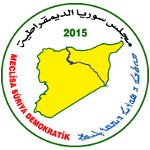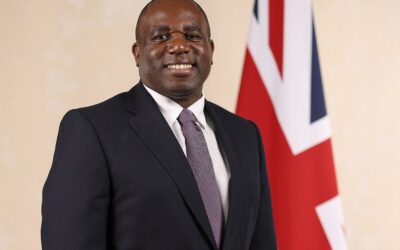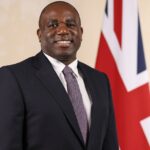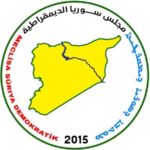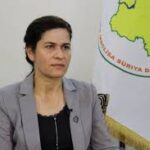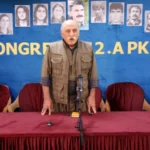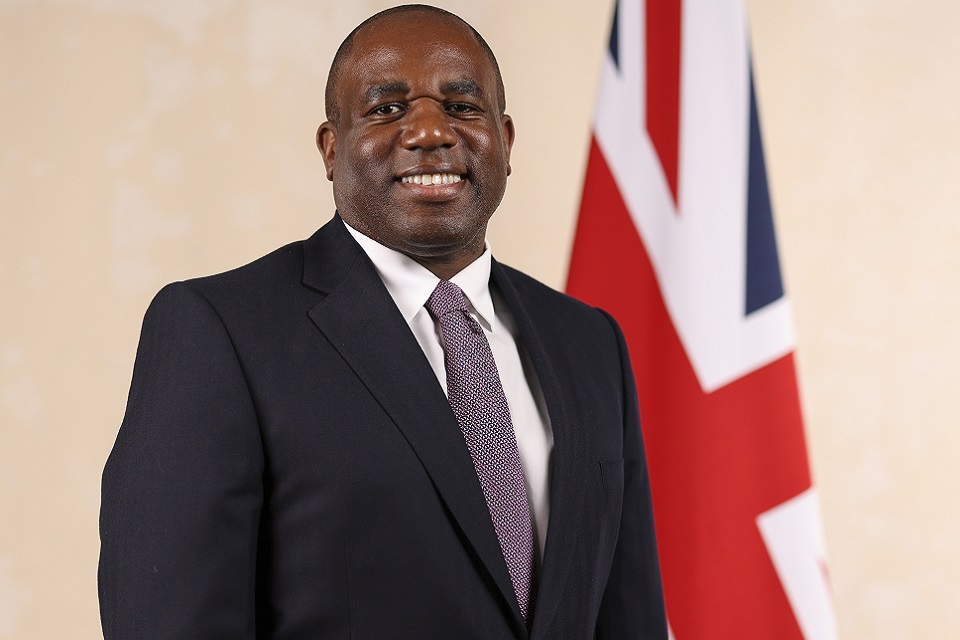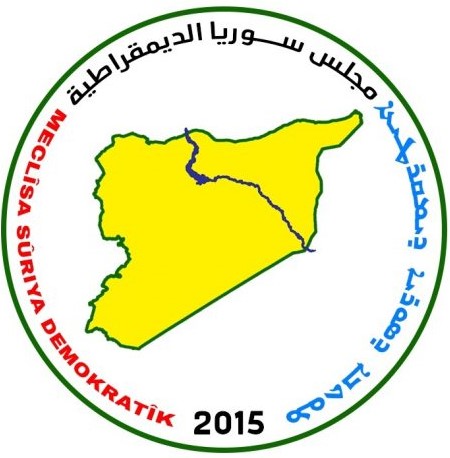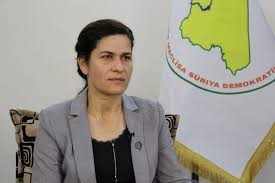A new political path. The Damascus-SDF Agreement and the Future of the Syrian Event
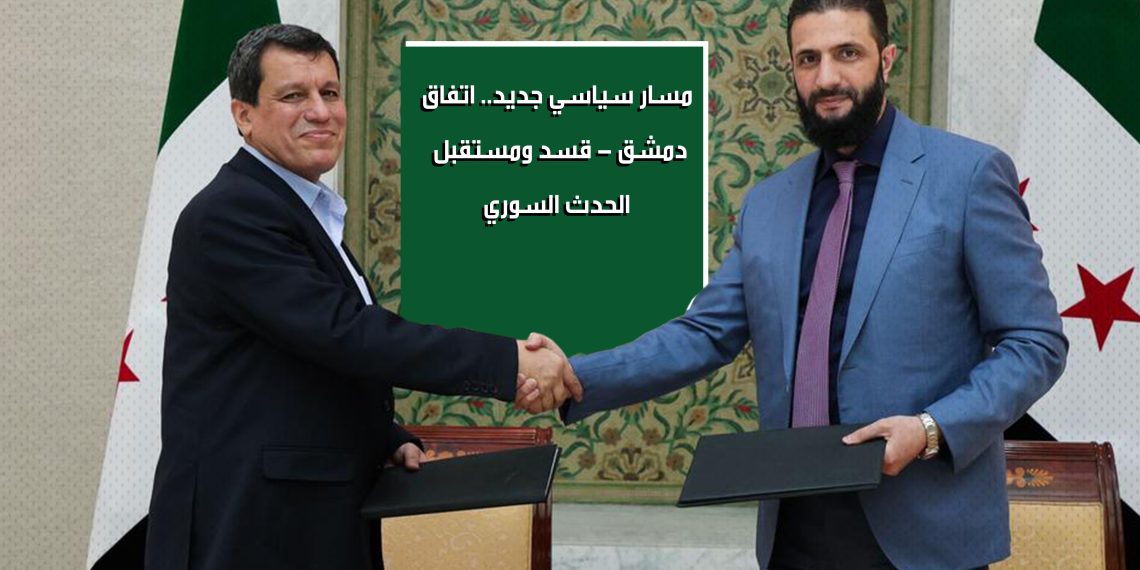
A new political path. The Damascus-SDF Agreement and the Future of the Syrian Event
With the signing of the agreement between Damascus and the Syrian Democratic Forces (SDF), the Syrian file has entered a new phase that may constitute a strategic turning point in the path of building a pluralistic democratic state. In this context, Ahmed al-Sharaa had previously told Reuters that he sees a solution with the Kurds and the SDF through negotiation, announcing his intention to meet with its commander, General Mazloum Abdi. Indeed, these statements were translated into reality, as it was announced that an agreement had been signed between the interim Syrian President Ahmed Al-Shara and General Abdi. By integrating all civil and military institutions affiliated with the Autonomous Administration within the framework of the Syrian state, according to a statement issued by the Syrian presidency.The
timing of this agreement is a reflection of the complex dynamics taking place in the Syrian scene, as this step comes against a backdrop of rapid changes and increasing challenges. The agreement reflects a new phase of understandings between the parties concerned, raising questions about its future prospects and how it will be translated into reality. In light of these facts, opinions differ on the actual impact of this agreement on Syria’s political and security future.
The repercussions of the agreement on the political scene
Regardless of the details of the agreement that have been announced, journalist Asif Ahmed believes that this step will cast a shadow on various political and security files, paving the way for a possible breakthrough. He stresses that future Syria will witness an active Kurdish presence at the highest levels of government, within the framework of national consensuses that strengthen partnership between all components until the features of the new political map become clear.
Ahmed added that the agreement was brokered by major international parties, which means that any security escalation in areas such as the Syrian coast may hinder its implementation, which the sponsoring powers will not allow. He also believes that the agreement limits Turkish influence in Syria, which is automatically reflected in reducing the role of Ankara-backed groups in favor of strengthening the Arab role, especially Saudi and Emirati ones, in rearranging the Syrian scene and contributing to its recovery.
Ahmed concludes by noting that the agreement was ready some time ago, but its announcement was delayed until the appropriate political conditions matured, stressing that all influential parties in the Syrian crisis participated in its drafting. Hence, careful follow-up of the repercussions of the agreement remains necessary, especially with regard to the interaction of the various forces with it and its impact on the humanitarian and political situation in Syria.
Timing agreement to strengthen Syrian unity
Nidal Akkari, a member of the Democratic Civil Action Committee, said the signing of the agreement represents a fundamental step towards liberating Syria from the Assad regime, especially in light of the ongoing attempts to divide the country. He considers that this step puts Syria on the path of reconstruction as a unified state, and enhances the presence of the Kurdish component in the national scene, which adds a new dimension to the inclusive Syrian identity.
Akkari asserts that the agreement blocks attempts to obstruct the building of the new Syrian state and gives civil society additional impetus in demanding a pluralistic democratic system. He believes that the presence of the SDF within the administrative and military structure of the state strengthens the project of national unity and establishes a new phase that ensures the participation of all components in shaping the future of the country.
There is no doubt that the agreement between Ahmed al-Shara’ and General Mazloum Abdi constitutes an important milestone in the developments of the Syrian event, as it opens the door to a more stable political and military scene. However, the biggest challenge remains how to implement the terms of the agreement on the ground, and translate it into concrete steps that lead Syria towards a democratic, pluralistic state, in accordance with Syrians’ aspirations for a more just and stable future.
Ammar Al-Matouq-Damascus

